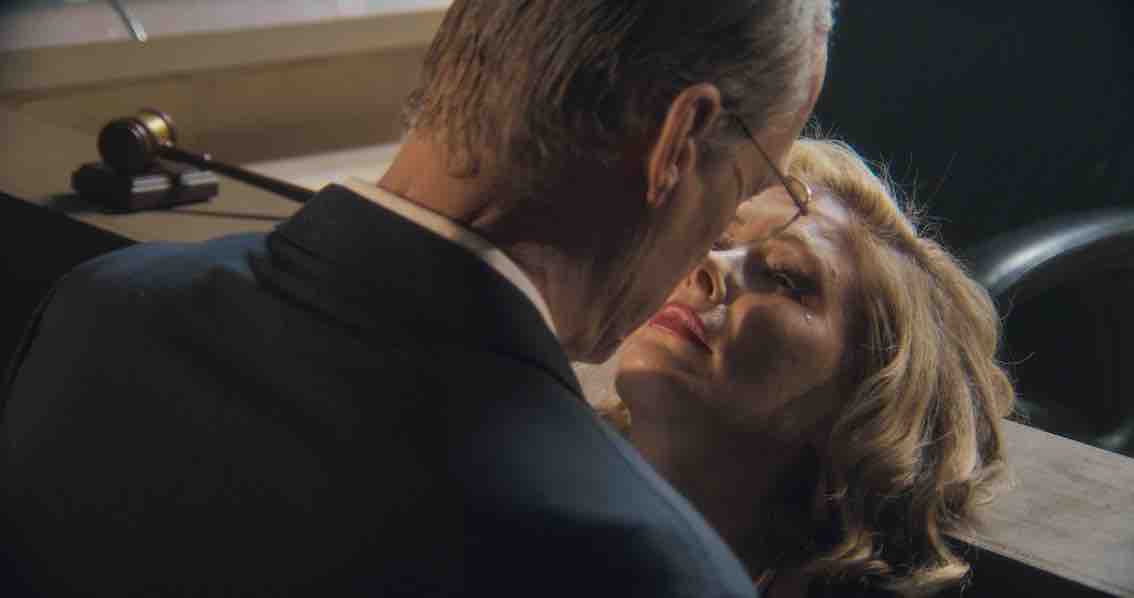Jordan Strafer LOOPHOLE
Opening: 12 May 2023, 16:00–20:00

Welcome to the opening for Jordan Strafer’s exhibition LOOPHOLE. At 18:00, Jordan Strafer will be in conversation with Theresa Traore Dahlberg.
The exhibition LOOPHOLE takes its starting point in the true story of the 1991 trial of William Kennedy Smith (John F. Kennedy’s nephew) who was accused of the rape of 29-year-old Patricia Bowman. The court case was televised and attracted extensive media coverage, with millions of viewers watching the event. The jury acquitted William Kennedy Smith of all charges and later the lead defense attorney married one of the jurors.
The case had everything related to the idea of “Americanism”, something that has been important working material for Jordan Strafer’s artistic production: a Kennedy, a televised court case, power relations, sexuality, the transformation of individuals into characters and a multiplicity of emotions.
The installation has as its central element Jordan Strafer’s new film LOOPHOLE, which gives the exhibition its title. With imagined scenarios and re-enactments based on court transcripts combined with poetic and cinematic fictions, Strafer defines a flexible language and tone for this film, creating a time and space for the power of the erotic and its performativity taking place in front of the camera. The original court case that inspired this film took place during the 90’s; a moment where image-related codes for power heavily affected film industry productions. Strafer takes a cinematic genre popular at that time – the erotic thriller – to combine desire and law, power and systemic questions, sexuality and fear. Classic examples of the erotic thriller genre include softcore pornography, romance and erotic fantasy as in the cases of Fatal Attraction and Basic Instinct, with objectification of bodies and projection of sexual fantasies connecting with porn industry.
In LOOPHOLE, Jordan Strafer combines many symbolic representations of power related to image culture. While some characters must be protected by blurring the filmed image (with the paradox that this technique has many failures), some other characters have absolute control of the situation, displaying a knowledge of how to act in front of the cameras. In terms of performativity, the film also reveals the mechanisms of control that operate inside a court and how language, theatrical voice and the law itself support those who understand how to navigate within the system.
The exhibition also presents a series of portraits connecting the televised court case with the Jordan Strafer’s own personal and domestic sphere (her mother was involved in the court proceedings) and a diorama with a TV set – the context where the film will continue in its next iterations.
Jordan Strafer (1990, Miami) is a New York-based artist and filmmaker. Her work has been shown at New Museum in New York and Haus der Kulturen der Welt in Berlin, among other institutions. With her autobiographical and fictitious work, Strafer reflects on racial identity, sexuality, gender and class.
This exhibition is the result of a collaboration between Index, Secession (Vienna), KINDL (Berlin) and Ludwig Forum (Aachen).
We are thankful to the Austrian Embassy in Stockholm and IASPIS – the Swedish Arts Grants Committee’s International Programme for Visual and Applied Arts for their support.